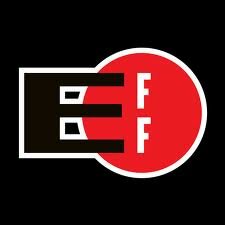HackMeet: Know Your Digital Rights
October 16th, 2011Back at HackMeet for day two. The first session is also being put on by the Electronic Frontier Foundation, which is an organization I’m developing some serious admiration for. This talk is being facilitated by Marcia Hofmann, a senior staff attorney with the EFF.
What do you do if the police seize your computer? How do you protect your data while traveling? What if they demand your passwords? In the information age almost every digital device from desktop computers to ipods can carry potentially sensitive data that’s worth protecting from the prying eyes of the State. With our Constitutional privacies shredded in the name of security, and law enforcement language crafted to trick you into consenting to an unlawful search, it’s more important than ever for activists to familiarize themselves with their digital rights.
First and foremost it is critically important that you do not lie to a law enforcement officer. They can legally lie to you, but if you are caught lying to them, or even misremembering facts you tell them, it can be construed as hindering an investigation, or obstructing justice, which could be more serious than the charges themselves. In the digital realm attempting to delete, destroy, alter or obfuscate sensitive data in hidden volumes can also be construed as hindering an investigation, or obstructing justice. So, she does not recommend these strategies. It’s also important never to interfere with a search in progress. Get identities of the officers and dispute the search later with an attorney.
The central message of any know your rights presentation is the right to remain silent. The Fifth Amendment reads, “No Person… shall be compelled in any criminal case to be a witness against himself.” Officers are required to inform you of this right, the so called Miranda Warning, at the point of arrest, but you have the right to remain silent at all times. You don’t have to answer questions and you don’t have to assist them in anyway. She recommends that you immediately assert your right to an attorney, and that it’s a good idea to be polite and not escalate the tension.
If you are engaged in an action in which you may be arrested it’s a good idea to write the number an attorney, or a civil rights organization such as the ACLU or NLG in permanent marker on your arm because if you are arrested they may seize your phone.
When traveling she recommends having a phone, laptop or hard drive specifically for travel and to carry as little data as possible. By keeping your data stored elsewhere you prevent the possibility of seizure. Having hidden encrypted folders is not necessarily the best strategy while traveling because if they ask you if you have hidden folders and you lie you’re right back in that risky position of being changed with hindering an investigation or obstructing justice. Some people also choose to ship their electronic devices by regular mail and cross the border with no data on their person.
With regard to passwords and encryption the privilege against self-incriminating yourself only protects the contents of your mind, not existing records. You can remain silent when asked for passwords during a routine interaction, but they can compel you by law to handover passwords with a court order, similar to a warrant obligating you to open your door. They can also overcome your privilege to remain silent by granting you immunity because then you are not in danger of incrimination. So if you are carrying data that is sensitive to other people this is a risk. If you continue to refuse you’re looking at a contempt charge.
The Electronic Fronteir Foundation is currently preparing a full paper on the rights surrounding digital information when traveling which should be on their website soon. I’ll update this post when it’s finished.`


